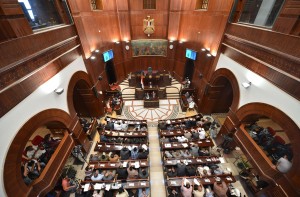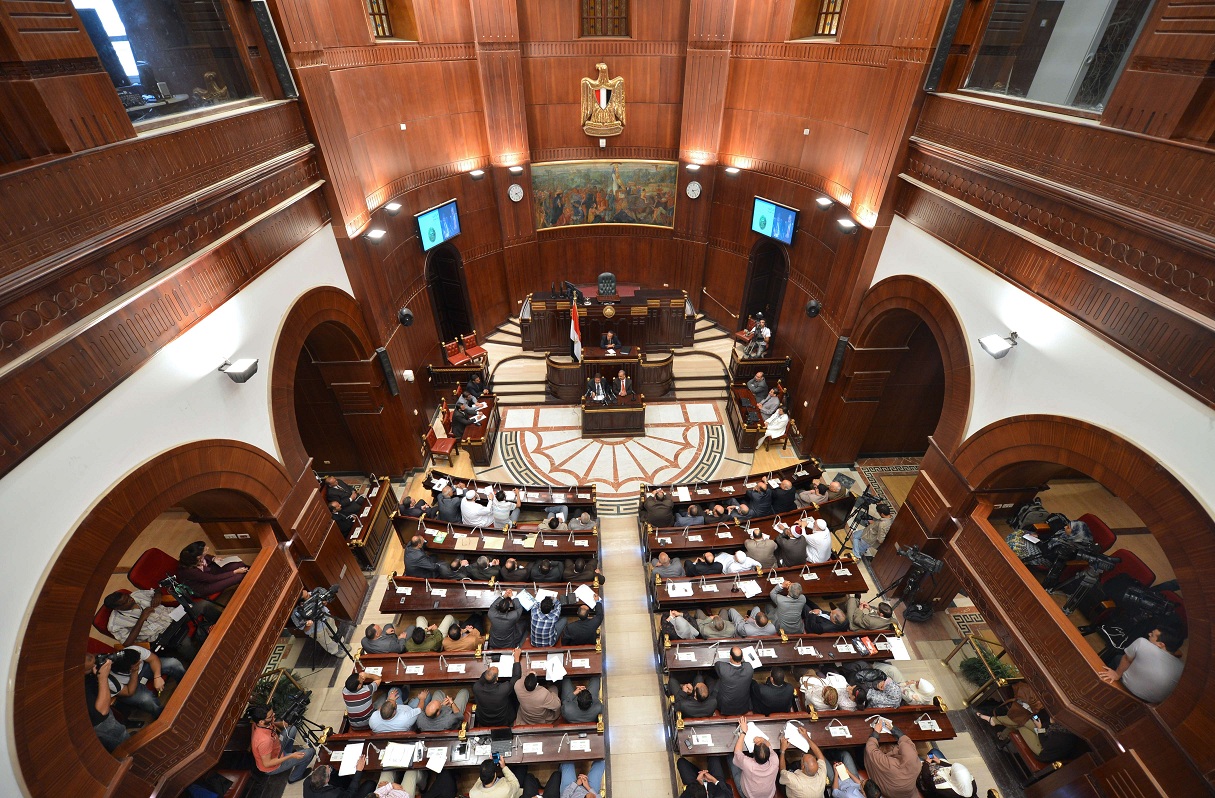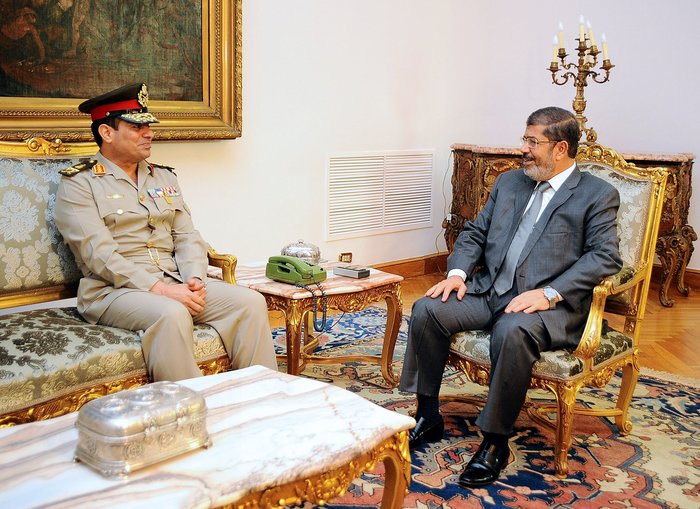
AFP PHOTO / KHALED DESOUKI
Al-Jamaa Al-Islamiya criticised the Supreme Constitutional Court’s (SCC) ruling on the constitutionality of some articles in the election draft law.
The SCC decided on Monday to return the election draft law to the Shura Council, which drafted the law, after rejecting five articles as “unconstitutional”.
The SCC’s ruling prohibits citizens who were prevented from serving in the military by the Minister of Defence or State Security from running in the parliamentary elections.
In a joint statement released on Wednesday, Al-Jamaa and its political wing, the Building and Development Party (BDP), said that the decision breaches thousands of citizens’ rights and threatens the opposition. Members of Al-Jamaa Al-Islamiya were among those prevented from serving in the military for security reasons.
“This ruling has grave repercussions,” said Alaa Abul Nasr, secretary general of the BDP. “It won’t just affect Islamists but all opposition.”
Abul Nasr stated he was prevented from serving in the military because he had spent in prison. “Not only that, but State Security also prevented my brothers and nephews from serving in the military,” said Abul Nasr, adding that Abul Nasr and his family’s conscription in the military was seen by State Security as a threat to national security.
“How can the SCC follow recommendations made by an apparatus that has been dissolved according to peoples’ demands?” Abul Nasr asked, referring to State Security, which was dissolved in 2011 and replaced by National Security.
“We were disenfranchised from the military for opposing the former regime,” Abul Nasr said. “Now they want to further punish us by disenfranchising us from the House of Representatives.”
Abul Nasr stated that the situation is serious, because the article could be used to remove opposition in the future. He gave an example, saying that if the Popular Current is opposing the Freedom and Justice Party (FJP), then under this article, the FJP can easily prevent Popular Current members from serving in the military for security reasons in order to disenfranchise them from parliament.
Mohamed Zare’, Chairman of the Arab Penal Reform Organisation, said that the SCC’s decision is correct. “People who were deemed a danger to national security should not be allowed to issue laws and legislations in parliament,” Zare’ said.
He added, nevertheless, that the decision is bound to unjustly punish some “innocent” people. “Such people should be given the opportunity to appeal their disenfranchisement in front of the Military Judiciary,” Zare’ said.
The Shura Council, the upper House of Parliament, is responsible for passing the new parliamentary election laws. According to Article 230 of the constitution, the Shura Council “shall take charge of the power of legislation once the constitution goes into effect and until a new House of Representatives is elected”.
Additional reporting by Ethar Chalaby

